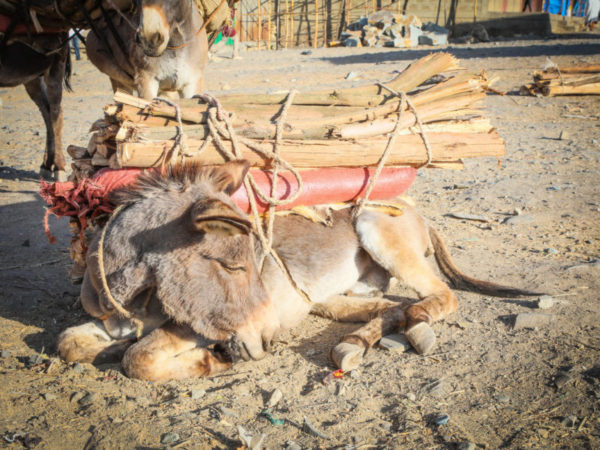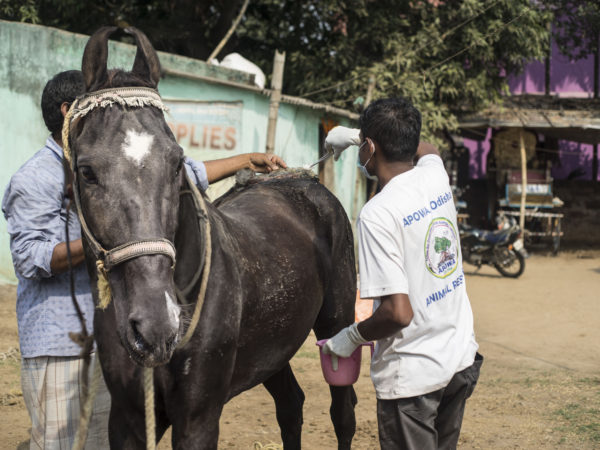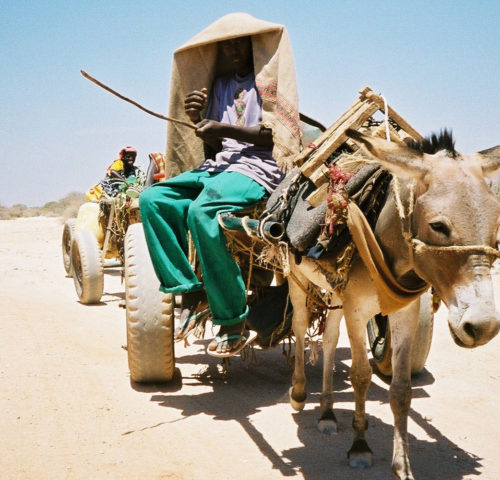
The consequences of poor harnessing
Last year, an estimated one in four working animals treated by SPANA were suffering with wounds. By far the biggest causes were poor harnessing and ill-fitting equipment.
In the world’s poorest countries, the majority of donkeys, horses and mules are depended upon to pull back-breaking loads. Without adequate harnessing, their job is made even harder.
Proper equipment is either unaffordable or simply not available to buy, and owners resort to using scrap plastic and metal to harness their animals. These abrasive materials rub the skin raw, creating painful wounds that become deeper as they continue to work each day.
Hundreds of thousands of equids battle through their working lives with unsafe harnessing. Deep wounds, chronic infection and painful sores that have no chance to heal; this is the reality for animals working under these conditions.
Many more animals need to be treated, their owners educated, and humane equipment widely distributed. SPANA’s skilled teams are on the ground and need help to put these practical measures in place.
Please watch our short video about the harnessing issues faced by working animals everyday.

Raza’s Story
10-year-old Raza is a Marwari horse, a breed native to the Jodhpur region of India. Raza works on a farm in the eastern state of Odisha, India, helping his owners, Ali and Sita, harvest just enough crops to feed their family of four.
With only a make-do harness at Ali’s disposal, each time he halted Raza, the cart would collide into the horse’s tail end. When hauling hay one afternoon, Raza stumbled on the uneven path causing the cart to crash into his rear where an open sore was already festering. Overloaded and unable to keep his balance, he fell hard onto his frail front legs and wounded both knees.
Fortunately, SPANA’s mobile clinic was there to help. The vet carefully cut away hair and dirt that had become matted in his tail wound, and thoroughly cleaned and sterilised Raza’s injuries. He then gently applied antibiotic ointment to fend off infection, and instructed Ali to clean the wounds twice a day while his horse was recovering.
The vet stressed that Raza’s injuries could have easily been prevented with improved harnessing. He replaced the broken breeching strap and showed Ali how to modify the harness, adding soft padding to protect sensitive areas of the horse’s body.
Raza is just one out of tens of thousands of animals our vets treat for agonising harness wounds every year.


